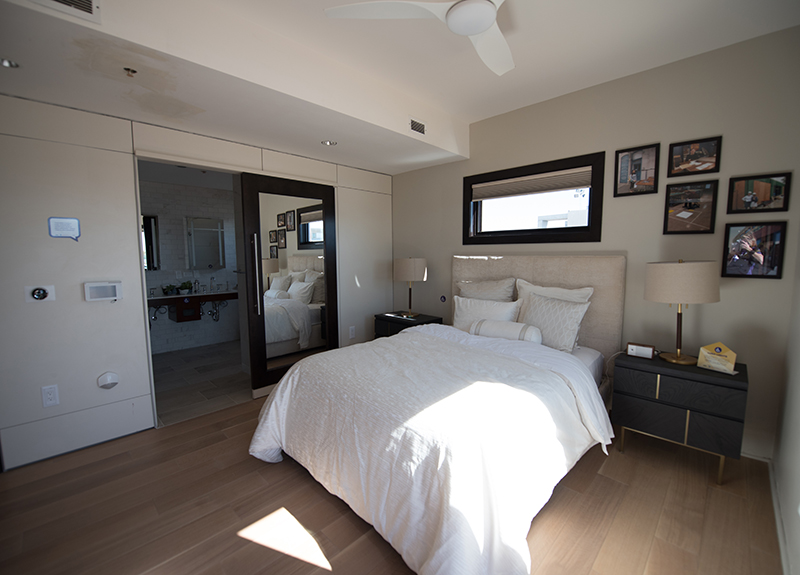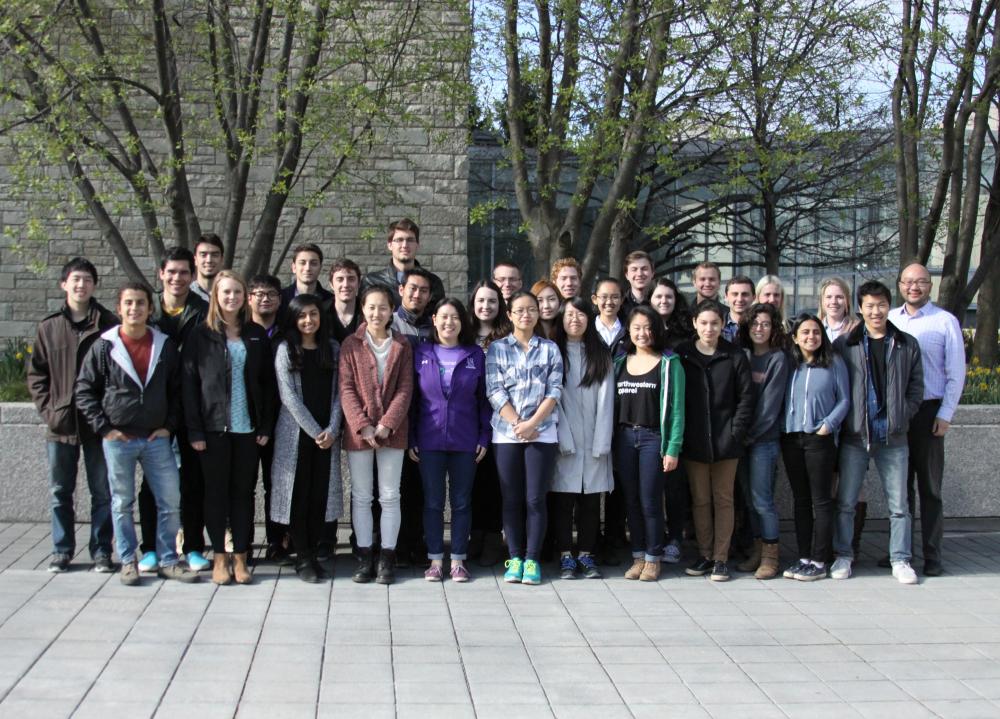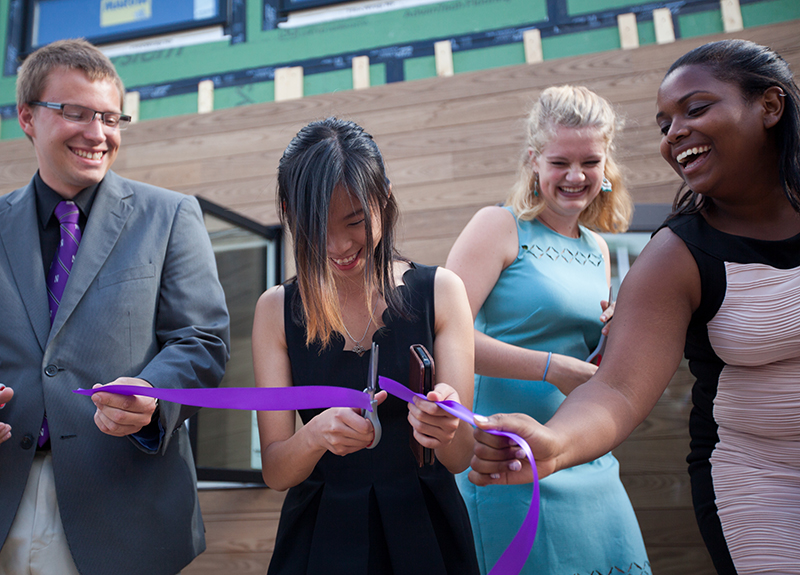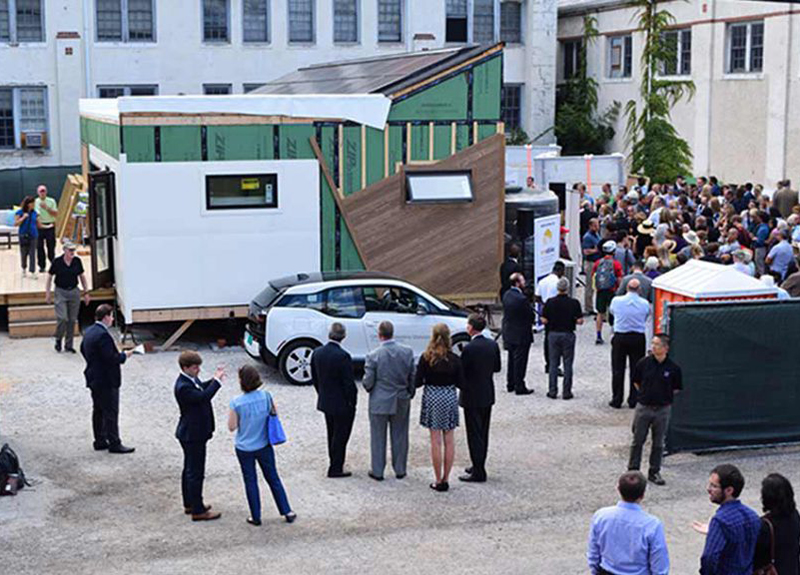University’s 2017 Solar Decathlon entry purchased by Habitat for Humanity
Article originally published in Northwestern Research News. House by Northwestern is supported in part by the Institute for Sustainability and Energy at Northwestern (ISEN).
When Colorado’s famed Rocky Mountain Columbines bloom next spring, some of them will do so around a green-powered house engineered with the environment in mind. Enable, Northwestern’s student-designed solar house, has found a permanent home out West.
Purchased by Berthoud Habitat for Humanity in September, the modular home was conceived and built as the University’s 2017 entry into the US Department of Energy’s Solar Decathlon. The biennial event is a collegiate competition that challenges student teams to design and build highly efficient, innovative buildings powered by renewable energy. Berthoud is home to about 8,900 residents and is located 50 miles north of the competition site in Denver.
“Every thriving city in the world — Evanston and Denver, for example — also has an affordable housing problem. There are too few places where teachers and firefighters can live comfortably,” says Dick Co, faculty director of the House by Northwestern that became Enable. “It’s exciting to know that a family will soon be living in a space conceptualized, built, and showcased by Northwestern students.”
Designed with roof-integrated solar panels, ultra-efficient heating and cooling systems, and photocatalytic surfaces that break down harmful pollutants in the air, Enable embodies an innovative approach to sustainable living. The home earned first-place finishes in the Market Potential and Communications contests, third place in Engineering, and sixth overall at the Solar Decathlon competition.
“We’re grateful for all of the hard work that went into the design of this home and we look forward to rebuilding it alongside our many sponsors and volunteers,” says Jan Dowker, executive director of Berthoud Habitat for Humanity. “There’s much excitement on our end because this project will bring smart-home technology to the affordable housing community and showcase how families can better meet their budget needs through direct energy savings each year.”
Berthoud Habitat is currently partnering with the Geometry In Construction programs at local Loveland and Thompson Valley high schools to build two homes this school year. Enable as well as the contextual learning homes, are being overseen by Mike Cook, Berthoud Habitat for Humanity volunteer construction superintendent.
“The opportunity to partner with Northwestern to bring this project to Berthoud is unbelievable,” says Cook. “The Northwestern team built a house that is not only technologically advanced, but also very comfortable and livable. By partnering with the University, we will be able to deliver this amazing house to a deserving partner family in our community at an affordable cost.”
Co approached Habitat for Humanity following discussions with the Department of Energy regarding Enable’s future. Berthoud Habitat previously purchased and is in the process of rebuilding a home displayed at the 2015 Solar Decathlon.
After 10 years at Northwestern, Co recently left the University to cofound the Evanston Development Cooperative (EDC), an Illinois multistakeholder co-op focused on housing affordability, sustainability, and job creation in Evanston. As president, Co will lead EDC in bringing a private sector solution to traditionally intractable social challenges.
“I believe Maya Angelou put it perfectly: ‘Do the best you can until you know better. Then when you know better, do better.’ We’ve learned so much from House by Northwestern,” says Co. “With the University’s commitment to human-centered design and modern construction techniques, we now know how to build faster, cleaner, and better. So why not go out and do it? And do it in an equitable and sustainable way that empowers all of our residents. Our collective success here in Evanston can then be replicated in other cities — and we’d be eager to share our notes.”






